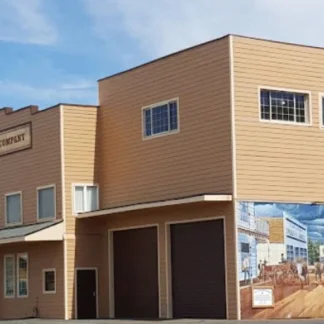Nueva Vida Counseling
Nueva Vida Counseling is a private rehab located in Toppenish, Washington. Nueva...
MERIT Resource Services provides quality outpatient alcohol drug counseling services. MERIT Resource Services provides Intensive Outpatient (IOP), Outpatient, Relapse Prevention, Assessments and Education. MERIT Resource Services is located in Toppenish, Washington.
Contact us for more information: (509) 865-5233

Connect with MERIT Resource Services by calling their admissions team directly.
(509) 865-5233 Website Get DirectionsResearch clearly demonstrates that recovery is far more successful and sustainable when loved ones like family members participate in rehab and substance abuse treatment. Genetic factors may be at play when it comes to drug and alcohol addiction, as well as mental health issues. Family dynamics often play a critical role in addiction triggers, and if properly educated, family members can be a strong source of support when it comes to rehabilitation.
Group therapy is any therapeutic work that happens in a group (not one-on-one). There are a number of different group therapy modalities, including support groups, experiential therapy, psycho-education, and more. Group therapy involves treatment as well as processing interaction between group members.
In individual therapy, a patient meets one-on-one with a trained psychologist or counselor. Therapy is a pivotal part of effective substance abuse treatment, as it often covers root causes of addiction, including challenges faced by the patient in their social, family, and work/school life.
Group therapy is any therapeutic work that happens in a group (not one-on-one). There are a number of different group therapy modalities, including support groups, experiential therapy, psycho-education, and more. Group therapy involves treatment as well as processing interaction between group members.
In individual therapy, a patient meets one-on-one with a trained psychologist or counselor. Therapy is a pivotal part of effective substance abuse treatment, as it often covers root causes of addiction, including challenges faced by the patient in their social, family, and work/school life.
In individual therapy, a patient meets one-on-one with a trained psychologist or counselor. Therapy is a pivotal part of effective substance abuse treatment, as it often covers root causes of addiction, including challenges faced by the patient in their social, family, and work/school life.
Nueva Vida Counseling is a private rehab located in Toppenish, Washington. Nueva...
Columbia Hospital is a private rehab located in Buena, Washington. Columbia Hosp...
BHS – Toppenish is a private rehab located in Toppenish, Washington. BHS – Toppe...
James Oldham Treatment Center, part of Triumph Treatment Services, is a secluded...